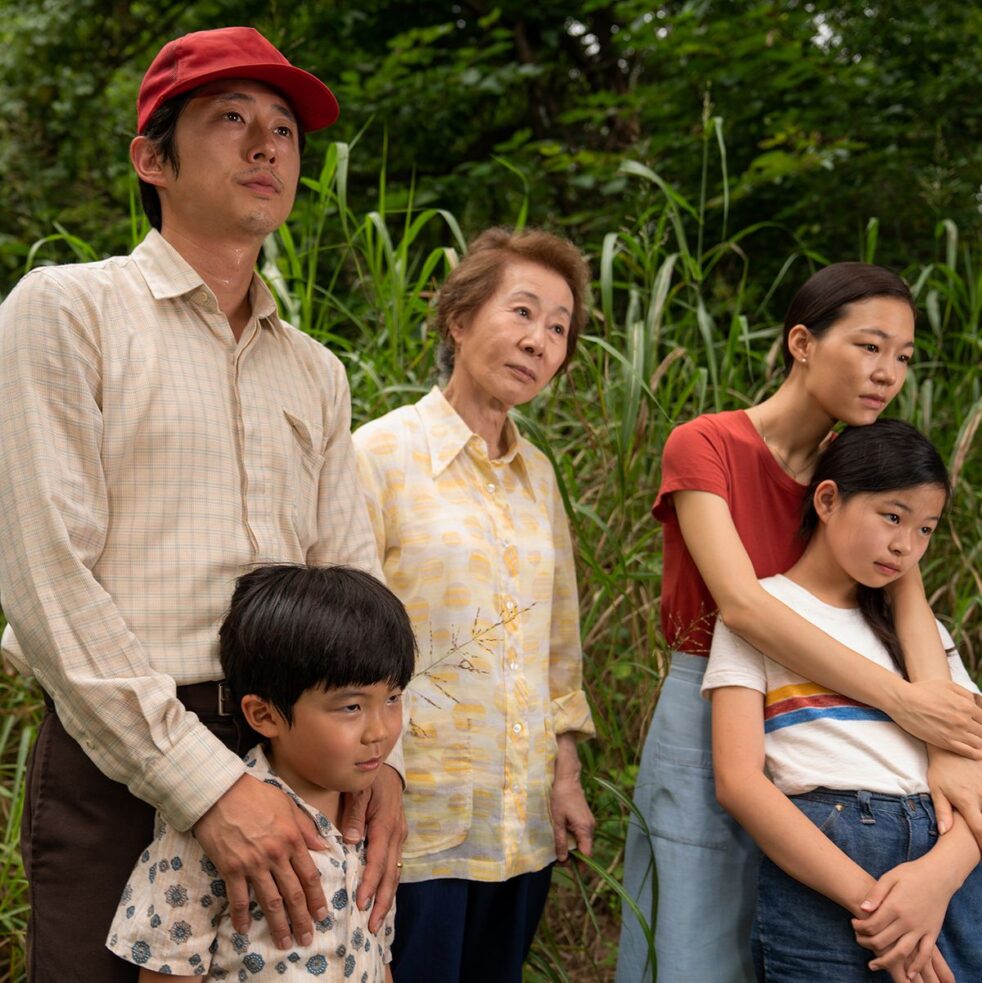Our Take: 5 Stars
In the latest film by writer-director Lee Isaac Chung (“Lucky Life”), Chung crafts a deeply personal and profoundly moving portrait of immigrant life in America, one that is perfect for this day and age.
The film, “Minari” follows the Korean-American Yi family as they relocate from California to a farm in Arkansas to chase the “American Dream.”
The film follows a family of four — Jason, Monica, and their children Anne and David — as they struggle to adapt to their new life in Arkansas, and are soon joined by Monica’s mother, Soon-ja.
The film is superbly acted. Anchored by the performances of Steven Yuen (“The Walking Dead”) and Han Yi-ri (“As One”) as Jason and Monica, respectively, the audience is transported into this family’s home and into their lives. Yuen and Yi-ri have a powerful level of chemistry that makes their interactions mesmerizing.
Even the film’s two young leads, Noel Kate Cho as Anne and Alan Kim as David, flourish and provide a genuine depth to their characters that is almost unheard-of in actors that young.
However, even in her somewhat smaller role, Youn Yuh-jung (“Woman of Fire”) steals the show as the sweet yet irreverent grandma that curses and gambles and, to young David, represents Korea.
The cinematography and direction in this film are incredible. Chung utilizes simplicity to create a more moving experience for the audience.
In a film so rooted in its story, characters and dialogue, complex editing and cinematographic techniques would have detracted from the cinematic experience rather than adding to it.
The simplicity of Chung’s techniques elevates the film, adding a layer of complexity beyond more difficult techniques.
The simplicity of the filmmaking evoke the idea of a window where the audience looks into the reality of the character’s lives, unobstructed by cinema trickery or embellishment.
Simplicity, here, becomes more complex than complexity. Because of this, the few instances where Chung chose to have visible editing or a shift in camera focus are so much more noticeable and striking. The most lasting part of the film is its relatability. It is a story of America and a story of any American family.
Every bit of the film resonates deeply for the audience, from the jovial humor to the heartbreaking struggles and every bit in between. This film plays like watching life happen before the viewer’s very eyes. That comes from the story, the autobiographical inspiration and the writing. Lee Isaac Chung wrote the screenplay for “Minari” in 2018, believing that it would be the last thing he made, as he was planning on retiring. To create this film he reached so deeply into play for “Minari” in 2018, believing that it would be the last thing he made, as he was planning on retiring. To create this film, Chung reached so deeply into himself that he touched what it means to not only be American, but to be human as well.
When it was announced that “Minari” would compete in the “Best Foreign Language Film” category at the 2021 Golden Globes, which are presented by the Hollywood Foreign Press Association, there was immediate backlash and calls to change the rules regarding foreign language films at the awards.
Unlike many other award ceremonies, at the Golden Globes, when a film has less than 50 percent of its dialogue in English and is chosen to compete for the Best Foreign Language award, it is ineligible for either of the two most prestigious awards: Best Picture – Drama or Best Picture – Musical or Comedy.
“Minari” was then declared ineligible for the top awards, despite it being an American production by an American filmmaker.
This past Sunday, “Minari” won the Golden Globe for Best Foreign Language Film. This is not the first time the Golden Globes has snubbed an incredible American film based on its language.
Lulu Wang’s critically acclaimed 2019 film, “The Farewell,” was likewise declared ineligible for the top awards, whereas other films, like Quentin Tarantino’s 2009 film “Inglourious Basterds,” which is around 30 percent English, was not considered a Foreign Language film.
This has caused some controvery in the HFPA.
Despite its unfair designation as a “Foreign Language Film”, “Minari” tells a profoundly American story, one that looks deeply at what it means to be American and highlights the beauty of America’s diversity.
